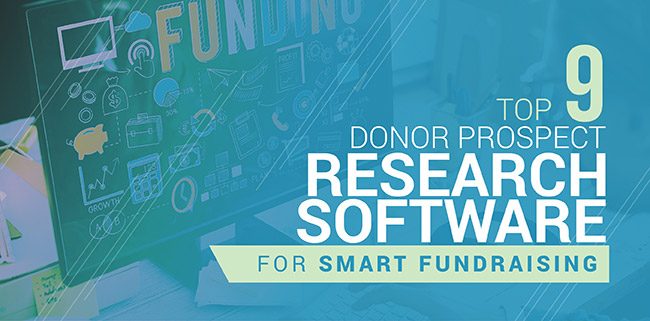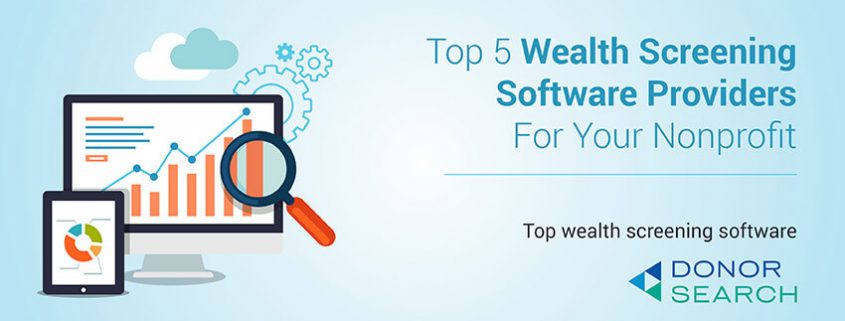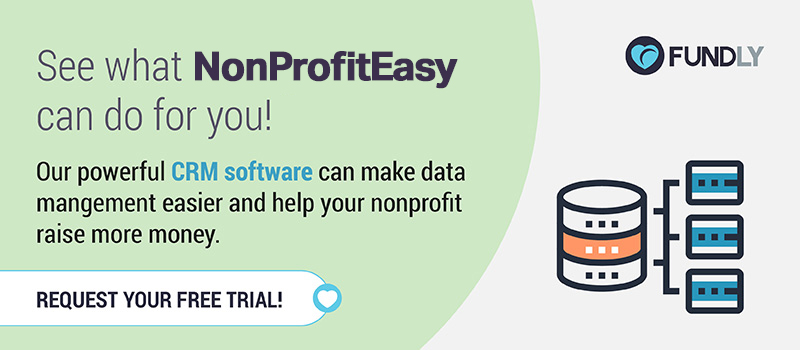4 Things Nonprofits Needs to Know About Prospect Research
by Kate WhiteA pack of crayons can be so exciting to a child, as the plethora of colors opens up a world of possibilities. Likewise, your nonprofit’s donor constituency consists of a variety of different individuals who each have a different background and relationship with your organization.
Nonprofits should try to focus their fundraising efforts on those donors who have the capacity to make generous donations. It can be challenging to know where to get started, which is why many nonprofits invest in a fundraising technique called prospect research.
In this article, we’ll discuss the answers to four questions about prospect research:
- What Is Prospect Research?
- How Can Nonprofits Conduct Prospect Research?
- Why Should Your Organization Invest in Prospect Research?
- What Types of Organizations Use Prospect Research?
Let’s jump right into the first question!
#1: What Is Prospect Research?
Prospect research is the process of researching existing or potential donors who have the capacity to give to your organization. Fundraisers, development teams, and nonprofits all use prospect research to stay abreast of who to focus their efforts on.
Prospect research can unearth of variety of information including:
- Personal backgrounds
- Basic contact information
- Philanthropic motivations
- Past giving histories
Another key component of prospect research is wealth screening. While the two services often get confused, wealth screening is a type of prospect research that looks at a supporter’s giving capacity to determine if the individual would be willing to give more.
Some indicators of a prospect that’s willing and able to give more include:
- Past giving history to your organization and other nonprofits
- Political giving
- Real estate ownership
- Business affiliations
Combined with your other prospect research, you’ll gain better insight into your supporters as well as learn if these donors could become major or planned contributors. Best of all, conducting wealth screening is a strategy that every type of organization can use, and it fits any budget. Many of the tools used to find wealth indicators offer free resources for organizations!
Additionally, your CRM can track this information, so you can access more information in one place to make more individualized fundraising appeals to donors who have a higher affinity for your organization or capacity to give.
The bottom line: Prospect research is a strategy that any nonprofit can use to learn more about current donors and prospects. The information can be used to help organizations create a tailored cultivation or solicitation plan.
#2: How Can Nonprofits Conduct Prospect Research?
There are several ways to conduct prospect research, and your preferred method should depend on both the number of prospects you wish to research as well as your budget:
Prospect Research Company
These companies can take your list of donors, screen them against a variety of public and proprietary databases, and provide you with detailed philanthropic and wealth information. A prospect research company can screen prospects daily, weekly, or monthly, according to your schedule.
Additionally, if you were to partner with one of these companies, they will look at various aspects of prospect research, such as a donor’s:
- Past giving habits
- Philanthropic involvement
- Contributions to other nonprofits
With detailed insights on your donor, this information can help you discover potential major donors. It’s all the prospect information you need to find major gift prospects in less time so you can allocate more of your resources to other fundraising efforts.
Prospect Research Consultant
Working with a consultant is another option for your nonprofit. Much like a prospect research company, consultants can do extensive research on individual major gift prospects using public databases.
What sets a consultant apart from a prospect research company is that they can help you take the information they’ve obtained and develop effective solicitation and engagement strategies. Not only will you get key insights into your organization, but you’ll also receive expert advice to help you reach out to these potential major donors.
There are so many different types of consultants, and many professionals can perform more than just prospect research. That’s why it’s important to find a consultant that fits your organization.
Look for a consultant that has experience working with similar organizations and references that you can contact. Talking with consultants’ past clients will give you a feel for how they approach prospect research. If you’re happy with a consultant’s results, you should see if they offer other services and look into bringing them on to assist you with other aspects of your fundraising strategy.
Hiring the perfect consultant takes a lot of work. If you want some guidance on how to start your search, Averill has a comprehensive fundraising consultant guide that can help!
Do-It-Yourself
The last option your organization has is to complete prospect research in-house. This approach will save you the most money, but it’s best to conduct prospect research yourself when you have a prospect researcher on your staff. This person, or team of researchers, will know how to efficiently gather and organize information from a plethora of databases.
If your nonprofit can’t afford a prospect researcher, then there’s always a more makeshift approach to prospect research that a current staff member or team of staff could learn to conduct. This process involves online research using sites like Foundation Center, Guidestar, and Bloomberg to learn about your donor’s philanthropic involvement.
As you consider the best approach for your nonprofit, be aware that there are advantages and disadvantages to each option. Weigh the pros and cons to determine the way that will best fit your needs and budget.
The bottom line: While there are several ways organizations can conduct prospect research, the best approach is to use an expert—whether it’s a consultant or an in-house researcher.
#3: Why Should Your Organization Invest in Prospect Research?
Identify major gift prospects
You choose the company you keep, and, as a nonprofit in need of funds, you want that company to include as many major gift prospects as possible. Major gift prospects have the capacities to give transformational gifts that allow you to surpass fundraising goals and better fulfill your mission.
Indicators of high quality major gift prospects include:
- Past charitable giving to your organization
- Past charitable giving to other nonprofits
- Nonprofit involvement as a foundation trustee or director
- Political giving
- Real estate ownership
Prospect research will uncover this data, so you can find new major gift prospects fast. When you store the information in your CRM, you have a wealth of prospect data from which to craft individualized ask strategies to the prospects who are most worth your time.
Moreover, new major gift prospects don’t always come from new donors. In fact, most major gift donors begin as annual donors, which is why it is important to screen your loyal, even if minimal, financial supporters.
Learn more about your volunteers
Volunteers are the people who give their time and energy to bring your mission to the masses. Without them, your nonprofit would struggle to find the manpower to make an impactful difference.
A benefit of volunteers is that many of them are eligible to apply for volunteer grants. Prospect research reveals employer information, which you can use to discover which of your volunteers work for companies that offer these types of grants. Of course, store this information in your CRM in order to capitalize on this form of corporate giving each time that an eligible constituent volunteers.
Make the most out of your organization’s events
Party planners hate when they don’t know how many people are coming. How much pizza should they order? Is a larger room necessary? Does the clown have enough balloons?
Take your events seriously and plan ahead. You want to know who is coming to your events so that prospect research can swoop in for the big assist. Prospect research allows you to screen your attendees, so you know who to provide special perks to and direct your major gift officers to converse with, at an event. In a case study put together by IMPACTism, a nonprofit advocacy group, the worst use of nonprofit time was when staff could spent their time at fundraising events talking to all the wrong people, when plenty of major gift donors are standing out in the open.
The bottom line: Investing in prospect research is worth the time and money because you’re able to get deeper insights into your donors and volunteers. Plus, you’ll be able to find major donors faster with these strategies.
#4: What Types of Nonprofits Use Prospect Research?
The truth is that every nonprofit can benefit from using prospect research, but the process and its results may be different for every type of organization.
That’s why we’ve created a list of the organizations and the types of supporters that they can conduct prospect research on:
- Schools: K-12 schools and universities can conduct prospect research on parents, alumni, students, and faculty. This research can help schools determine which supporters have the potential to become major donors. In addition, the information can be used to plan your next fundraising event.
- Healthcare Organizations: Hospitals can use prospect research to gain a more complete picture of their patients. In fact, many prospect research services allow hospitals to send in newly admitted patients to complete daily screenings. Healthcare organizations can use the information to determine how much to ask donors.
- Greek Organizations: Fraternities and sororities can use prospect research to learn valuable information about alumni. Bulk screenings are the perfect service of many Greek organizations.
- Faith-Based Organizations: Churches, mosques, synagogues, and other places of worship can conduct research on new attendees at services as well as long-term congregants to determine who can contribute major gifts. Faith-based organizations can also use prospect research to plan and devise other fundraising initiatives.
- Arts and Cultural Nonprofits: Organizations that focus on the arts can screen ticket purchasers, event attendees, membership holders, and consistent supporters to learn which donors have the potential to give more.
As you can see, there are plenty of organizations that can benefit from prospect research. Even if we didn’t list your type of organization, gaining deeper insights into your supports can offer a ton of valuable advantages.
Just be sure to evaluate your organization and the kind of information you want to gain from your supporters to determine if prospect research is right for your nonprofit.
The bottom line: Prospect research is a strategy that can be used by virtually every type of organization. The trick is figuring out what information is going to be the most applicable for your organization’s needs.
With prospect research, you can improve the capabilities of your CRM and lead better directed and more individualized fundraising campaigns.
Want more fundraising advice? Check out these additional resources:
- Ultimate Guide to CRMs. Once you’ve performed your prospect research, you’ll need a place to store all the data you’ve gained on your donors. Nonprofit CRMs are the perfect place to store your information and track the progress of your fundraising initiatives.
- Full List of Fundraising Ideas. With more information on your prospects, you can boost your fundraising efforts and tailor your initiatives to best suit your prospective donors. Get our complete list of fundraising ideas—perfect for any cause.
- Donation Request Letters. Learn how to write the perfect donation letter to ask for gifts using the information you gained via prospect research.
Crowdfunding Resources
Fundraising Resources:
Popular Resources

Fundly is dedicated to providing you with the tools you need to raise money for whatever your cause may be.




